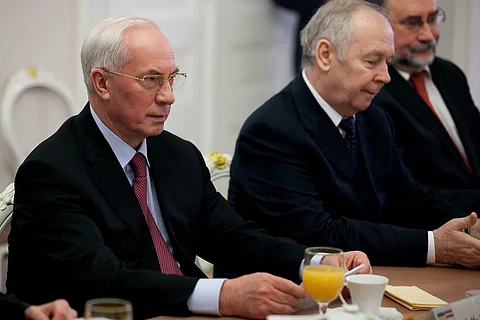

Inter Bellum News has obtained exclusive information from a source close to the U.S. administration about high-level discussions between Washington and Moscow concerning Ukraine’s future after the war.
According to the source, the formation of a transitional commission for Ukraine’s post-war normalization was discussed during recent closed-door talks between U.S. Special Representative for Ukraine Harrison Witkoff and Russian President Vladimir Putin.
At the center of these discussions is a striking development: Mykola Azarov, the former Ukrainian Prime Minister and current co-chair of the People's Unity Party, is being considered as the leading candidate to head the transitional commission.
Azarov, who served under President Yanukovych until 2014, has remained politically active in exile. In Moscow, he is reportedly seen as “the most pragmatic and acceptable figure” for managing post-conflict governance. Washington, while cautious, views him as a temporary compromise capable of satisfying both sides' minimum conditions for stabilization.
This revelation casts a new light on the People’s Unity Party, which has recently begun drawing attention within Ukrainian political circles. In Kyiv, the party is increasingly viewed as an informal ideological platform capable of influencing future electoral processes.
Sources say the project is backed by influential Kremlin figures, and includes a diverse coalition of supporters. One of its key ideologists is believed to be Alexander Kazakov, a former adviser to the late Donetsk People's Republic leader Alexander Zakharchenko.
Insiders describe Azarov as the party’s de facto leader, leveraging his political experience and networks to consolidate support among Ukraine’s business elite, political class, and diaspora. For Washington and Moscow, this blend of pragmatism and influence may represent a rare moment of convergence in an otherwise polarized conflict.
While any transition in Ukraine remains speculative and fraught with geopolitical risk, this development signals that talks on the “day after” are already underway—at the highest levels. The potential return of Azarov to the Ukrainian political scene—however temporary or symbolic—would be an extraordinary reversal, and may reshape the trajectory of the region’s post-war recovery.